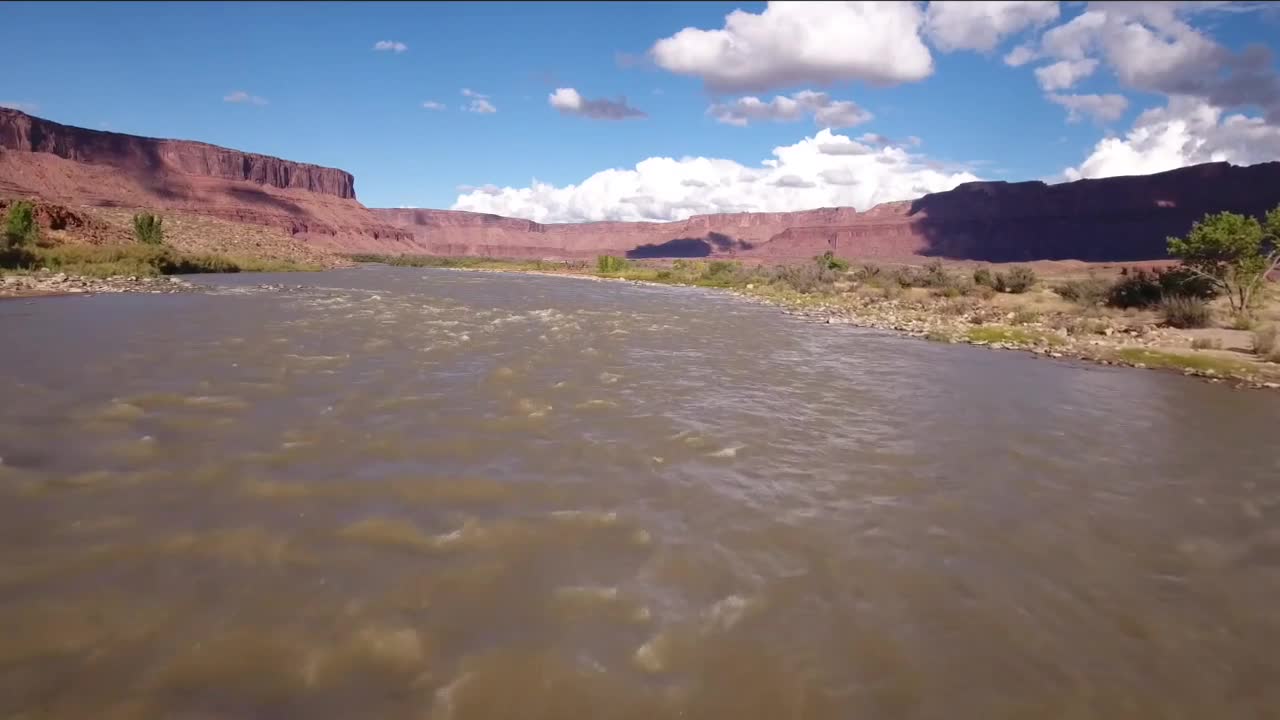PHOENIX — As a federally imposed deadline for a Colorado River agreement came and went without a deal, Governor Katie Hobbs and the Arizona Legislature called for the federal government to intervene.
Hobbs and the Republican and Democratic leaders of the Legislature blamed Colorado and the other Upper Basin states for the impasse.
They sent a joint letter Tuesday to Interior Secretary Doug Burgum, asking him to ensure Arizona receives its share of Colorado River water and sharply criticizing the Upper Basin states for their refusal to share in water cuts.
The current agreement over how to divide water from the rapidly declining river expires at the end of next year, and the seven states in the Colorado River Basin have been negotiating since 2023 on a new compact.
Colorado River water makes up about 36% of Arizona's water supply, according to the state Department of Water Resources.
Colorado River states deadlocked
Talks between the four Upper Basin states – Colorado, New Mexico, Utah and Wyoming – and the Lower Basin states of Arizona, California and Nevada have been stalled for months.
Hobbs spoke about the negotiations in unusually blunt terms on Tuesday.
“A Colorado River future that puts all the cuts on Arizona, but the Upper Basin doesn't take any cuts, is not acceptable,” she told ABC15.
Arizona has already saved millions of acre feet of water in the reservoir Lake Mead, she said, adding that additional savings of more than 500,000 acre feet are also on the table.
“The Lower Basin states have come to the table with offer after offer, with real sacrifices in our water; Arizona, taking the brunt of that sacrifice,” she said. “And the Upper Basin, really being led by Colorado, has refused to budge at all and refused to take any cuts.”
Decades of overuse and a long-term drought have severely slashed amount of water flowing in the river and stored in its reservoirs. The original 1922 agreement on how to divide the Colorado River's water is based on water levels that no longer exist.
The new agreement will lay out how much Colorado River water the states can use – and how much their allocations can be reduced. Arizona, which has the lowest priority for Colorado River water, will bear the brunt of the cuts, Hobbs said.
“We can make those sacrifices,” she said. “We've done it before, and we're willing to, but we need other states to be with us in that and take some cuts, too.”
In a joint statement, the seven states, Department of the Interior and the U.S. Bureau of Reclamation said that while no deal was reached, negotiators made progress.
“While more work needs to be done, collective progress has been made that warrants continued efforts to define and approve details for a finalized agreement,” they said. “Through continued cooperation and coordinated action, there is a shared commitment to ensuring the long-term sustainability and resilience of the Colorado River system.”
But Hobbs and the Legislature say the Trump administration needs to take the lead.
“We've asked for the federal government to step in and help to broker a deal,” Hobbs said. “It's clear that leadership is needed, because the Upper Basin has refused to move.”
Water expert: Time is running out
Absent a deal, there is “a huge amount of uncertainty” about what happens after 2026, said Sarah Porter, a water expert at Arizona State University’s Morrison Institute for Public Policy.
The Bureau of Reclamation, which manages the Colorado River system, could determine how to divide the water and come up with its own set of priorities.
The federal government could also stick with the existing priorities – which would mean the cuts would primarily fall on central Arizona “because those users have the lowest priority in the Lower Basin.”
And time is running out for a solution, Porter warned.
“Any agreement would need approval by Arizona's Legislature, possibly congressional action, lots of stakeholder meetings to make sure that people can live with it, so we really don't have the luxury of time in this situation,” she said.




